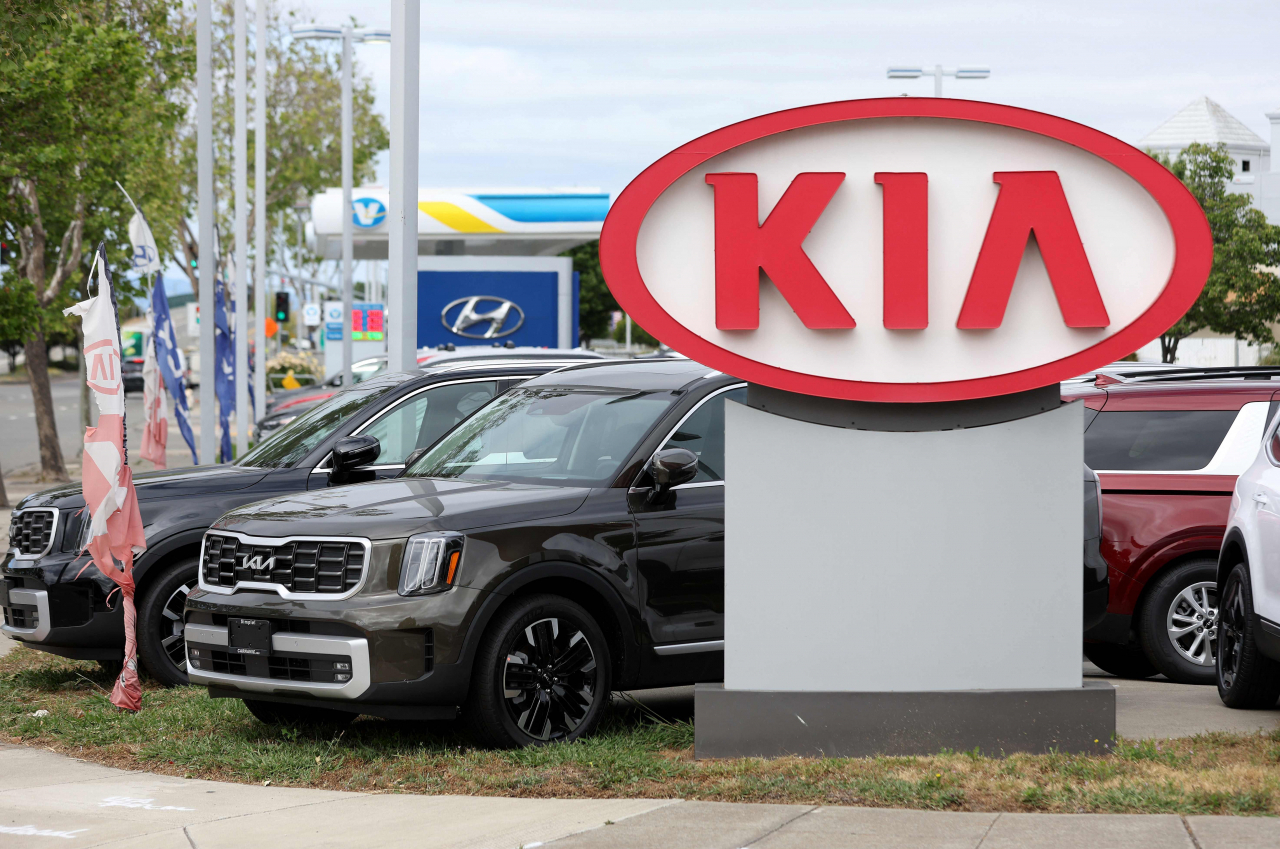[KH Explains] Are Hyundai, Kia really responsible for thefts in US?
Questions raised over fairness of holding Korean automakers accountable for criminal activities
By Kan Hyeong-wooPublished : June 13, 2023 - 16:02

South Korean automakers Hyundai Motor Company and its sister firm Kia have been facing a public backlash and multiple lawsuits in the United States as the number of vehicle thefts among certain models lacking immobilizers surged after videos of young men stealing the cars went viral on social media platforms last summer.
Videos with the hashtags “Kia Boyz” or “Kia Boys” began trending on social media platforms, namely TikTok, across the country. They showed mostly teenagers breaking into Hyundai and Kia cars and driving them recklessly. In these videos, the thieves would tear off a plastic cover behind the steering wheel and use a USB cable to turn a knob and start the car.
The targeted cars lacked immobilizers -- electronic security devices designed to prevent engines from starting unless a proper car key is used. The vehicles were Hyundai and Kia cars manufactured from 2011 to 2021 without push-button start mechanisms and immobilizers.
Major US cities such as Baltimore, Cleveland, Milwaukee, New York City, San Diego, St. Louis and Seattle have sued the automakers for creating a public nuisance and an epidemic of car thefts. New York City said the reports of stolen Hyundai and Kia vehicles jumped by 660 percent on-year in the first four months of this year.
Despite the lack of anti-theft devices, the automakers said the cars were fully compliant with federal anti-theft regulations. Hyundai and Kia in February vowed to provide free software upgrades to 8.3 million vehicles without immobilizers that would install an ignition-kill feature preventing the popularized method of theft.
A US-licensed attorney, who spoke on the condition of anonymity, explained to The Korea Herald that if Hyundai and Kia products are deemed to noticeably lack safety devices compared to other carmakers, the issue of product liability could gain steam.
According to Highway Loss Data Institute's analysis, about a quarter of Hyundai and Kia 2015 vehicle series had standard immobilizers whereas 96 percent of other cars had the anti-theft device.
“If a person slips on a banana in Walmart and falls down, that person theoretically can sue Walmart for the product’s liability and hold the company accountable. The standard for product liability is very high in the US,’’ said the attorney.
In May, the carmakers agreed to a $200 million (259 billion won) settlement in a US consumer class-action lawsuit over the nationwide car thefts. The settlement covers about 9 million car owners and includes payments for the loss of vehicles, damage to vehicles and insurance-related costs.
Blame game
Meanwhile, questions have been raised over why all the blame was put on the carmakers, with some asking whether they should be held 100 percent accountable for culprits' criminal activities.
"The problem of (Hyundai and Kia) vehicle thefts has been mostly observed in the US because the videos were going viral among social media users there,” said an industry source who wished to be unnamed, adding that there are some Hyundai and Kia vehicles that do not have immobilizers in other countries.
Kim Pil-su, an automotive engineering professor at Daelim University, said the issue at hand is the severe crime of vehicle theft.
"City governments should focus more on strengthening the punishment for vehicle theft to prevent the crimes in the first place," Kim said. “If municipalities are suing (Hyundai and Kia), they ought to also sue TikTok for offering a platform where videos encouraging vehicle theft are made available by criminals.”
Bernard Goldberg, an Emmy-winning writer and journalist, also pointed out the irony of the situation and criticized the lawsuits.
"Why blame criminals for stealing cars when you can blame car companies for making cars that, supposedly, are too easy to steal?" he wrote in his opinion article published in The Hill last week. "So, where will this thinking lead us? Well, for openers, should progressive cities sue drugstore chains for their decision to put stuff they sell on shelves that are accessible to looters? Is it the fault of looters for looting or is it the fault of drug store operators for making it so easy to loot?"
Despite the automakers' efforts to resolve the security issue, the trouble has not gone away, as police have reported substantial year-over-year increases in Hyundai and Kia car theft reports through April in seven cities, according to the Associated Press.
Hyundai said that it has installed a free software upgrade in about 225,000 out of 3.8 million vehicles. Meanwhile, Kia said it has done so in some 210,000 out of 4.5 million of its cars. The carmakers added that they have been actively notifying affected customers about the upgrade.






![[Weekender] How DDP emerged as an icon of Seoul](http://res.heraldm.com/phpwas/restmb_idxmake.php?idx=644&simg=/content/image/2024/04/25/20240425050915_0.jpg&u=)




![[Music in drama] An ode to childhood trauma](http://res.heraldm.com/phpwas/restmb_idxmake.php?idx=644&simg=/content/image/2024/04/25/20240425050929_0.jpg&u=)






![[Herald Interview] Mistakes turn into blessings in street performance, director says](http://res.heraldm.com/phpwas/restmb_idxmake.php?idx=652&simg=/content/image/2024/04/28/20240428050150_0.jpg&u=20240428174656)
